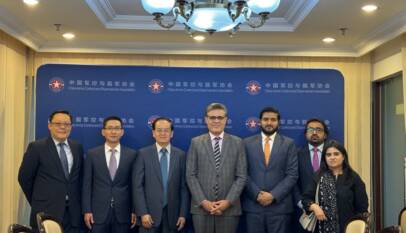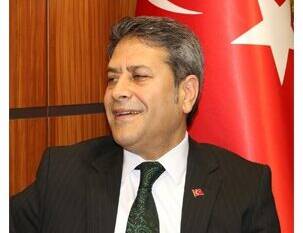Refining policies crucial for countering propaganda against CPEC, says Shakeel Ramay
In an article, Political Economist Mr. Shakeel Ahmad Ramay contends that there has been an escalation in propaganda against the China-Pakistan relationship in recent years, which he attributes to several factors, such as geopolitical interests of certain countries, anti-China sentiments on the rise in the West, and certain media outlets influence. Mr. Ramay stresses the significance of the China-Pakistan relationship, which he believes has been mutually advantageous for both countries. He examines the collaborative efforts between the two nations, including the CPEC, and the associated advantages to Pakistan. He advocates that Pakistan and China need to refine their engagement policies and counter any propaganda against their partnership.
China-Pakistan relationship has always been under scrutiny by Western powers and their allies in the region. They oppose closeness and brotherhood between the two countries. They want to undermine this relationship and create bad blood between the brotherly nations. It fits to their objectives to contain China and create chaos in the region.
In pursuance of these objectives, they have unleashed a new wave of malicious propaganda. The guiding philosophy of propaganda is a well-structured, well-explained and well-propagated lie is more powerful than 1,000 truths.
Though, the campaign is targeting all areas of relationship, China-Pakistan Economic Corridor (CPEC) is a prime target. Anti-CPEC forces are not leaving any stone unturned to sabotage CPEC.
They do not care about facts and data or truth. They care about undermining China-Pakistan relationship. The US and India, being chief opponents of CPEC, are leading the campaign. They are putting efforts to tag bad economic situation of Pakistan to CPEC and Chinese investment. Data is being manipulated, as they did in the case of Sri Lanka.
However, real data shows entirely a different picture. Let’s start by analysing the energy cooperation under CPEC. In 2014-2015, when China started to invest in energy sector, Pakistan was losing $4-5 billion due to loadshedding and no one was interested in investing in Pakistan. Instead of helping Pakistan, our allies were running campaigns to declare the country unsafe destination for investment. In this backdrop, Chinese companies came forward to invest in energy which helped Pakistan on multiple fronts. First, projects helped Pakistan manage loadshedding and losses of $4-5 billion. Just imagine, if Chinese companies had not invested, what would be the status of economic losses? A rough estimate suggests accumulative losses would be around $40-50 billion (these are lowest estimates keeping all other factors constant). Second, energy projects also helped Pakistan improve availability of per capita electricity from 547kwh in 2018 to 644kwh in 2022. Though it is very low, but still a step in the right direction.
Third, Chinese investment in renewable energy projects like Suki Kinari Hydropower Project of 884MW, Karot Hydropower (720MW), Kohala Hydropower (1124MW) and Azad Pattan Hydropower (700.7MW), Quaid-e-Azam Solar Park, UEP Wind Farm etc. will help Pakistan on four fronts. It will help reduce import bill by reducing import of fossil fuels. Cheap electricity from hydropower will enhance competitiveness of Pakistani industry. Pakistan will be able to provide cheap electricity to its citizens and help them combat inflation. Investment in renewable energy will help Pakistan meet Sustainable Development Goals and commitments related to Paris Climate Change Agreement.
CPEC created 92,000 direct jobs, which means it provided livelihood to 92,000 families. It also helped 100+ SMEs create indirect jobs. However, real benefits in term of jobs will be realised during the second phase.
Moreover, Chinese companies not only created jobs but also helped build skills of Pakistani employees. Sahiwal Coal Power, Port Qasim and HUBCO generously invested on skill development of Pakistanis. Data shows Sahiwal plant created 8,436 and 1,683 jobs during the construction and operational phases respectively. Pakistani and Chinese employees were inducted in the ratio of 63:37pc and 61:39pc during the construction and operational work respectively. China trained 245 engineers and 377 office or lower staff. Port Qasim project created 4,000 and 1,270 jobs during the construction operational phase respectively.
The proportion of Pakistani and Chinese employees during the construction and operational work was 75:25pc and 76:24pc respectively. Chinese company also trained 600 engineers and 2,000 officers and lower staff. These are only two examples. Story of other power projects is not different.
CPEC only contributed $5.7 billion to national debt of Pakistan. It is around about 4.5% of total debt, which clearly shows it has nothing to do with debt crisis of Pakistan. However, it is important to mention here that we should not mix China-Pakistan general cooperation with CPEC projects. For example, China provided monetary support to Pakistan to counter financial crunch. It helped our country through swap of money and safe deposits to strengthen the foreign reserves along with other measures.
From the above discussion, it can be inferred that China is part of solution not problem (like IMF WB and Western institutions).
Despite huge propaganda, China is still trying to help Pakistan avert crisis. It was the first country which rolled over payment of $4 billion. If Pakistan had to pay that tranche, what would be the status of foreign reserves? Definitely, foreign reserves would be in negative, as right now, Pakistan has only $2.5 billion. Apart from that, China is also looking for ways how it can help Pakistan further ease down the economic situation.
In conclusion, Pakistan and China must comprehend anti-China-Pakistan propaganda will not stop, rather it will intensify and opponents will come up with new allegations and lies. For example for the last few days, India is spreading rumours Chinese embassy in Pakistan has been closed, which is a blatant lie.
In this backdrop, Pakistan and China need to refine their policies of engagement and countering propaganda. They need to change their approach from reactive to proactive. It is not a matter of choice, it is need of time.
CPEC and Kazakhstan’s vital role in regional trade
The Republic of Kazakhstan has opened doors for the expansion of trade with Pakistan that …













